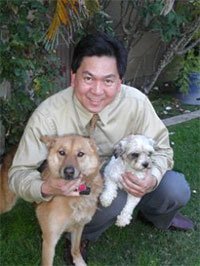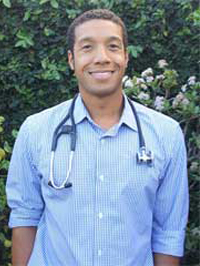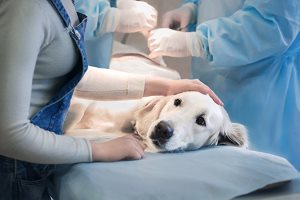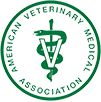Why choose spay and neuter services in Lakewood
Posted by Dr. Jose Arambulo
What are spay and neuter procedures
These are surgical procedures, which can be performed on cats or dogs. The difference between the two is the gender of the animal:- Females – Spaying involves removing the animal’s ovaries and uterus. This prevents a cat or dog from becoming pregnant. Once spayed, she will no longer go through heat cycles.
- Males – Neutering involves removing the animal’s testicles, along with related structures; A neutered animal cannot reproduce.
Safety considerations
We hear a lot of concerns about these procedures, some of which are rooted in myths. Many people believe that sterilized animals become obese. In reality, there is no connection. Like humans, animals gain weight because of inadequate exercise and poor diets. Another common belief is that females need to have at least one litter for health reasons, but the opposite is true. In order to maximize health benefits, she should be spayed before her first heat cycle. As for the risks of surgery, these procedures are generally safe when performed properly. If you are in or near Lakewood, you can feel confident bringing your pet to Bloomfield Animal Hospital. However, if you are looking for an animal hospital in another area, please choose carefully. We are proud to be AAHA accredited, and we embrace their strict surgical protocol, so our clients know that their furry friends are in good hands.Benefits of spaying and neutering
 The American Society for the Prevention of Cruelty to Animals (ASPCA) and most veterinarians including Dr. Jose Arambulo highly recommend spaying and neutering. A few of the many reasons include:
The American Society for the Prevention of Cruelty to Animals (ASPCA) and most veterinarians including Dr. Jose Arambulo highly recommend spaying and neutering. A few of the many reasons include:
- Help your pet live a longer, healthier life. A neutered male will not get testicular cancer, and he has a lower risk of prostate cancer. Spayed females live longer, and they are less likely to get breast tumors or uterine infections. Be a responsible pet parent. According to the American Society
- for the Prevention of Cruelty to Animals (ASPCA), more than six million animals enter shelters every year in the United States. Only half of them find forever homes, and more that twenty percent are euthanized. Every intact (not spayed or neutered) pet risks adding to the already tragic over abundance of companion animals.
- Prevent common behavioral problems. Cats in heat tend to meow incessantly and urinate outside the litterbox. Unneutered males may urinate to mark territory, exhibit aggressive behavior, and roam in search of a female. Spaying or neutering early may stop these problems before they develop. Altering an adult may improve breeding-related behaviors, though benefits are less likely once bad habits have formed.
- Avoid inconvenience and the risk of an accidental litter. Some people try to prevent breeding by keeping males separate from females in heat. However, that approach isn’t foolproof, because all it takes is an open gate, or a pet who is talented at escaping.
- Save money. Spaying and neutering are very affordable procedures, and in the long-term they are often much more economical than the alternative. Basic food, bedding, and medical care for a single litter easily exceeds the cost of spaying.
Call Us Today
Or
Book an Appointment
Bloomfield Animal Hospital is a trusted name in pets’ preventive, medical, surgical, and emergency care in Lakewood, CA. With a 30-year history as a family-owned pet clinic, it provides modern services in a warm, friendly environment. It’s one of the few veterinary hospitals to be AAHA-accredited.
 Dr. Jose Arambulo, owner and chief veterinarian, is experienced in treating eye, ear, and skin disorders and is especially interested in internal medicine, dentistry, and soft tissue surgery. He earned his BS in Medical Technology from the University of Santo Tomas and his Doctor of Veterinary Medicine from the University of the Philippines. He completed clinical evaluation for veterinary medicine at Purdue University in Indiana and was a veterinarian at Banfield and California before acquiring Bloomfield Animal Hospital.
Dr. Jose Arambulo, owner and chief veterinarian, is experienced in treating eye, ear, and skin disorders and is especially interested in internal medicine, dentistry, and soft tissue surgery. He earned his BS in Medical Technology from the University of Santo Tomas and his Doctor of Veterinary Medicine from the University of the Philippines. He completed clinical evaluation for veterinary medicine at Purdue University in Indiana and was a veterinarian at Banfield and California before acquiring Bloomfield Animal Hospital.
Dr. Arambulo is an active member of the American Veterinary Medical Association, Veterinary Information Network, Southern California Veterinary Medical Association, Southern California Filipino Veterinary Medical Association, and the Lakewood Chamber of Commerce.
 Our Traveling Surgeon, Dr. Zachery Smith, is a Diplomate of the American College of Veterinary Surgeons. He specializes in complex orthopedic and soft tissue surgery. While training, he worked with some of the best orthopedic surgeons in the country. He has lectured both locally and internationally. Dr. Smith plays a leading role at Veterinary Orthopedics of California, which is dedicated to providing high-level surgical services to pets.
Our Traveling Surgeon, Dr. Zachery Smith, is a Diplomate of the American College of Veterinary Surgeons. He specializes in complex orthopedic and soft tissue surgery. While training, he worked with some of the best orthopedic surgeons in the country. He has lectured both locally and internationally. Dr. Smith plays a leading role at Veterinary Orthopedics of California, which is dedicated to providing high-level surgical services to pets.
 Our visiting physician, Dr. Fred Brewer, is a veterinary cardiologist board-certified by the American College of Veterinary Internal Medicine. He completed his Bachelor of Science in Psychobiology at UCLA and earned his veterinary degree from Cornell University in 2009. Later, he completed a one-year general rotating internship at the California Animal Hospital Veterinary Specialty Group in West Los Angeles and a three-year cardiology residency at Cornell University.
Our visiting physician, Dr. Fred Brewer, is a veterinary cardiologist board-certified by the American College of Veterinary Internal Medicine. He completed his Bachelor of Science in Psychobiology at UCLA and earned his veterinary degree from Cornell University in 2009. Later, he completed a one-year general rotating internship at the California Animal Hospital Veterinary Specialty Group in West Los Angeles and a three-year cardiology residency at Cornell University.

Dr. Arambulo is an active member of the American Veterinary Medical Association, Veterinary Information Network, Southern California Veterinary Medical Association, Southern California Filipino Veterinary Medical Association, and the Lakewood Chamber of Commerce.




















